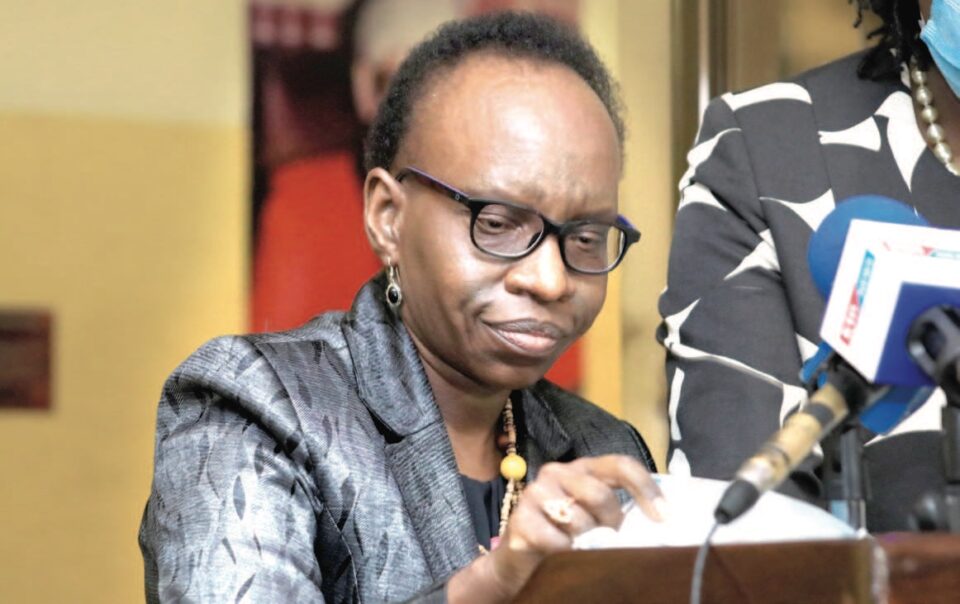Twenty seven counties are set to be investigated by the Ethics and Anti-corruption Commission (EACC) over allegations of misappropriation of Covid-19 funds.
They also face investigations relating to flouting procurement procedures and payments for fictitious tenders.
Auditor General Nancy Gathungu has recommended that EACC and the Directorate of Criminal Investigations (DCI) investigate and take action against county officials found culpable of any malpractices.
The revelations are contained in a special audit report on utilisation of Covid-19 funds allocated by the 47 county governments. The report was tabled in the Senate two weeks ago.
‘County governments procured Covid-19 items from non-prequalified bidders without justification. Section 106 (2) (a) of the Public Procurement and Asset Disposal Act, 2015, requires accounting officers to issue quotations to persons who are prequalified. On the contrary, quotations were issued to firms that were not qualified,” the report reads.
‘In this regard, it is recommended that the Ethics and AntiCorruption Commission and the Directorate of Criminal Investigations conduct further investigations to establish acts of criminality in inventory management of the Covid-19 related items,” it adds.
Akin to the procurement mess at the Kenya Medical Supplies Authority (Kemsa) that produced the ‘Covid billionaires” scandal, the auditor says the counties ordered goods worth billions of shillings in bulk.
The firms, some not even on the list of thousands of pre-qualified companies with a history of doing any business, with no financial track record nor capacity to deliver, were nonetheless handpicked by the counties to supply Covid-19 items.
‘Pursuant to section 107 (2) of the County Governments Act, 2012 and section 53 (2) and (5) of the Public Procurement and Asset Disposal Act, 2015, the county governments ought to have developed work plans, procurement plans, training plans and budgets to facilitate efficient and effective utilisation of funds,” the report says.
Valid contracts According to the report, 12 counties did not use competitive bidding, four dished out tenders to non-prequalified companies, six did procurement without carrying out any market survey, two misappropriated the Kenya Devolution Support Project (KSDP) funds, three irregularly split procurement contracts contrary to section 54 (1) of the Procurement Act 2015 and four procured goods without valid contracts.
The counties on the spot are Embu, Homa Bay and Murang’a, which are accused of issuing quota tions to non-pre-qualified bidders.
Busia, Kakamega, Marsabit and Meru counties are accused of procuring medical supplies without conducting market survey.
Bomet and Meru irregularly split procurement tenders contrary to section 54 (1) of the PPADA, 2015, according to the auditor.
Bungoma and Kitui allegedly misappropriated the Kenya Devolution Support Project (KSDP) funds, the report states.
Baringo, Busia, Homa Bay, Lamu, Mandera, Marsabit, Meru, Migori, Murang’a, Nyandarua and Trans Nzoia are accused of ignoring competitive bidding in their procurement process and instead employed direct procurement.
Kajiado, Kirinyaga, Laikipia and Tharaka Nithi, on the other hand, procured goods without valid contracts.
Gathungu listed Baringo, Bomet, Bungoma, Elgeyo Marakwet, Homa Bay, Kilifi, Kirinyaga, Kitui, Laikipia, Migori, Nandi, Samburu, Wajir and West Pokot counties as most notorious in breaking procurement laws.
County governments received the Covid-19 related funding amounting to Sh7.7 billion comprising conditional grants of Sh5 billion, allowances for frontline health workers at Sh2.6 billion and grants from DANIDA of Sh350 million.
There's no story that cannot be told. We cover the stories that others don't want to be told, we bring you all the news you need. If you have tips, exposes or any story you need to be told bluntly and all queries write to us [email protected] also find us on Telegram

